Soft Washing FAQs, Your Ultimate How to Guide for Johnson City Homes (2024)
Soft Washing FAQs, Your Ultimate How-to Guide for Johnson City Homes (2024)
Introduction:
Have you ever wondered why your neighbor's house looks sparkling clean without a pressure washer? Welcome to the world of soft washing! Did you know 87% of homeowners who try soft washing report longer-lasting results than traditional pressure washing? As a Johnson City resident, you probably have questions about this gentle yet effective cleaning method. Don't worry – we've got you covered! In this comprehensive guide, we'll tackle the most pressing soft washing FAQs, making it easy for you to decide on your home's exterior cleaning needs. Let's dive in and uncover the secrets to a squeaky-clean home that'll be the talk of the neighborhood.
The Key Takeaways:
- Soft washing is a gentle, low-pressure cleaning method using specialized solutions to effectively clean exterior surfaces.
- Soft washing, a gentle, low-pressure cleaning method, is a safe and effective way to clean most exterior surfaces, including vinyl siding, brick, stucco, roofs, and concrete. However, delicate materials may require extra care.
- While generally safe for landscaping and pets, precautions should be taken to protect plants and keep animals away during cleaning.
- In Johnson City, homes typically need soft washing every 18-24 months, but frequency can vary based on environmental factors and home location.
- Dark streaks on siding, discolored trim, and visible algae or moss growth are clear indicators that your home could benefit from a soft washing treatment.
- The soft washing process involves preparation, application of cleaning solution, dwell time, and thorough rinsing, typically taking 2-4 hours for an average-sized home.
- While DIY soft washing is possible, hiring a professional offers numerous benefits. These include access to proper equipment, expertise, and insurance coverage, giving you peace of mind and a job well done.
- When choosing a softwashing company, look for proper licensing, insurance, experience, good reviews, and clear communication about their process and pricing.
- Soft washing can be a more cost-effective option in the long run compared to frequent pressure washing. It provides longer-lasting results and is gentler on surfaces, saving you money and preserving your home's appearance.
- Regular soft washing improves your home's appearance and helps protect and preserve exterior surfaces from damage caused by algae, mold, and other contaminants.
What Exactly is Soft Washing?
Okay, let me tell you about soft washing. I've been in the exterior cleaning game for years, and when I first heard about soft washing, I was skeptical. How could something “soft” actually get the job done, right?
Boy, was I wrong! Soft washing is like the gentle giant of cleaning methods. It's a low-pressure washing technique using specialized solutions to clean surfaces. Unlike pressure washing, which is like hitting your house with a water cannon, soft washing is more like giving it a nice, bubbly bath.
I remember the first time I tried soft washing in my own home. I was nervous, thinking there was no way this gentle approach would tackle the green gunk on my siding. But let me tell you, it was like a delightful surprise! The algae and mold just melted away, and my house looked brand-spankin' new.
Here's the sciencey bit (bear with me, I'm no Einstein). Soft washing works because of the cleaning solutions, not brute force. These solutions are typically a mix of water, bleach, and sometimes surfactants. The bleach kills all the nasty organic stuff like algae, mold, and bacteria. Meanwhile, the surfactants help the solution cling to surfaces and break down dirt.
I learned this the hard way when I first tried making my solution. Let's say my DIY concoction didn't quite cut it, and I ended up with a patchy, clean job. But it was a valuable lesson learned: leave the chemistry to the pros! It's all part of the learning process, and now I can guide you through it.
Speaking of solutions, there are a whole world of different types out there. You've got your basic bleach-based cleaners, which work great on most surfaces. Then there are the eco-friendly options, which use things like hydrogen peroxide or plant-based ingredients. I've even heard of some fancy-pants solutions that have special additives to prevent the regrowth of algae and mold.
Once, I was cleaning a historic brick building downtown and had to use a super gentle, pH-neutral solution to avoid damaging the old mortar. It was nerve-wracking, but the results were terrific. The bricks looked like they'd traveled back in time!
While pressure washing has its uses, soft washing is often the better choice for residential cleaning. It's gentler on surfaces, conserves water, and delivers longer-lasting results. Plus, it's more effective at removing mold, mildew, and algae, which can cause long-term damage to your home's exterior.
Soft washing is a versatile technique that can work wonders on a variety of surfaces. From vinyl siding to stucco, wood, roofs, decks, and fences, it's a one-size-fits-all solution for exterior cleaning. I've even used it to restore a neighbor's heavily stained driveway, much to her surprise and delight.
I always tell folks that soft washing is more than just making things look pretty. It's also about protecting your home. Mold, mildew, and algae can damage surfaces over time. So, by soft washing regularly, you're extending the life of your home's exterior. It's like preventative medicine but for your house!
So, that's soft washing in a nutshell. It's a gentle, effective way to keep your home looking fresh and clean. If you're thinking of trying it, remember to always test the solution on a small area first. Trust me, it's a lesson you don't want to learn the hard way!
Why Choose Soft Washing for Your Johnson City Home?
Let me tell you, folks, when it comes to keeping your Johnson City home looking sharp, soft washing is the way to go! I've been in this business longer than I care to admit, and I've seen every cleaning method under the sun. But soft washing? It's a game-changer, especially for us Johnson City folks.
Now, I remember when pressure washing was all the rage. Everyone and their uncle were blasting their homes like they were trying to strip paint off a battleship. Heck, I was guilty of it, too! But boy, did I learn my lesson the hard way. One summer, I got too trigger-happy with my pressure washer and etched my vinyl siding. Talk about a facepalm moment!
That's when I discovered the magic of soft washing. It's like the difference between a bull in a china shop and a gentle spring breeze. Soft washing gets your home clean without all the risks of pressure washing. No more worrying about stripping paint, damaging wood, or blasting out your window seals. It's gentler than a kitten's purr but more demanding on dirt than my grandma on laundry day.
Now, let's talk about Johnson City specifics. Our climate here is… well, let's say it's got a personality of its own. We've got humidity that could make a fish feel dry, and that means one thing: mold and mildew are having a party in our homes. Traditional pressure washing might knock these uninvited guests off for a bit, but soft washing? It sends them packing for good.
I remember this one house I worked on last year. The poor thing was so green with algae, you'd think it was trying to camouflage in the woods. The homeowner had been pressure washing it every spring, but the gunk returned. We gave it a soft wash treatment, and I swear, that house stayed cleaner longer than a kid's room on allowance day.
The secret sauce in soft washing is the cleaning solution. It's a specially formulated blend of biodegradable detergents and mildewcides that doesn't just clean; it sanitizes. It's like sending a SWAT team after those mold spores. And in our Johnson City weather, that's crucial. We're not just making things look pretty; we're protecting our homes from the inside out.
And let's talk long-term savings because who doesn't love keeping more green in their wallet? Sure, soft washing might seem a bit pricier upfront compared to renting a pressure washer for a DIY job. But trust me, it's like the tortoise and the hare—slow and steady wins the race. You'll feel secure knowing that you're not just investing in a clean home, but also in long-term savings.
First off, you're not risking damage to your home. I can't tell you how many times I've been called in to fix a wrong pressure washing. Am I replacing the siding or repainting? That'll cost you more than a few soft washes, I guarantee it.
Plus, the results last way longer. Instead of fighting a yearly battle against grime, most clients only need a soft wash every 2-3 years. It's like the gift that keeps on giving! You'll have the peace of mind knowing that your home will stay clean and beautiful for years.
Oh, and here's a little nugget of wisdom I've picked up: soft washing can extend the life of your paint job. I've seen homes that looked like they needed a fresh coat, but after an excellent soft wash, they were shining like new money. It saved those homeowners a pretty penny, let me tell you.
Now, I'm not saying soft washing is some miracle cure-all. It will have to fix a leaky roof or mow your lawn. But for keeping your Johnson City home looking its best while protecting it from our unique climate challenges, it's the bee's knees.
Just last month, I soft-washed a historic home downtown. The owner was skeptical – thought nothing could save the old girl. But after we were done, I saw a tear in his eye. It looked better than the day he bought it 30 years ago!
So, if you're sitting there looking at your Johnson City home, wondering how to get it clean without risking damage or breaking the bank in the long run, consider soft washing. Your house (and your wallet) will thank you! Don't wait, give us a call and let's get your home looking its best with a gentle, effective soft wash.
Which Surfaces Can Be Safely Soft Washed?
Alright, folks, let's dive into soft-washing surfaces! I've been in this game for years, and let me tell you, I've soft washed just about everything under the sun. Well, maybe not everything—I tried to soft wash my old pickup truck once, but that's a story for another day!
First, let's talk about what you can safely softwash. Man, the list is longer than my honey-do list on a Saturday morning! You've got your typical house exteriors like vinyl siding, brick, stucco, and wood siding. I remember this one Victorian-style house I worked on – it had more types of siding than I have fingers! But soft washing handled it all like a champ.
Roofs are another biggie. Asphalt shingles, metal roofs, tile—they all love a good soft wash. I once cleaned a roof that was so covered in black streaks that the homeowner thought they needed a new roof! After we soft-washed it, it looked brand spanking new. The look on their face was priceless!
Remember concrete surfaces like driveways, sidewalks, and patios. Oh, and fences! Whether they're wood, vinyl, or that fancy composite stuff, soft washing can make them shine. I've even soft-washed pool decks, outdoor kitchens, and gazebos. If it's outside and dirty, soft washing can handle it.
But hold your horses! Some surfaces need a little extra TLC. Take painted surfaces, for example. You gotta be careful with these bad boys. I learned this the hard way when I accidentally stripped some paint off my own porch railings. Talk about embarrassing! Now, I always test a small, inconspicuous area first.
Delicate stonework is another one that requires kid gloves. I'm talking about your fancy limestone or sandstone features. These can be soft washed, but you have to use the right cleaning solution and be extra gentle. It's like washing a newborn baby—you want to get it clean, but you don't want to ruffle any feathers.
And let's remember windows. While soft washing is generally safe for windows, you must be careful about the cleaning solution. I once had a client who insisted I use the same potent mix on their windows as I did on their siding. Let's say we spent the next hour wiping every window by hand. Lesson learned!
Now, some surfaces are where soft washing isn't the best option. Take your car, for instance. Trust me, I learned that the hard way! Or delicate garden ornaments and statues often need a more specialized cleaning approach. And don't even think about soft-washing solar panels! Those babies need their particular cleaning method.
But here's the real kicker—soft washing is like a superhero for delicate materials. It's got the power to clean without brute force. Take wood, for example. Pressure washing can leave wood looking like it went ten rounds with a boxer, all splintered and rough. But soft washing cleans the wood while leaving the surface smoother than a baby's bottom.
Or could you think about your roof shingles? Pressure washing can strip off those protective granules faster than a kid unwrapping presents on Christmas morning. Soft washing, on the other hand, cleans without all that damage. It's like giving your roof a spa day instead of sending it through a car wash!
I once worked on this beautiful old brick house. The owner was terrified of cleaning it because the mortar was getting a bit crumbly. We soft-washed it, and I swear, that house looked 50 years younger without losing its historic charm.
The secret sauce is in the cleaning solution at low pressure. It's like the difference between scrubbing your face with sandpaper and using a gentle cleanser. Both might get you clean, but only one leaves you looking good afterward!
So there you have it, folks. From siding to roofs, driveways to delicate stonework, soft washing is your go-to for safe, effective cleaning. Remember always to test first and call a pro when in doubt. Trust me, your surfaces will thank you!
Is Soft Washing Safe for My Landscaping and Pets?
Oh boy, let me tell you about soft washing and landscaping! This topic is near and dear to my heart, especially after my “Great Flower Massacre of 2015” incident. But we'll get to that in a minute.
First things first—is soft washing safe for your precious petunias and furry friends? The short answer is mostly yes, but you have to be smart about it.
Now, I'll be straight with you. The cleaning solutions we use in soft washing aren't precisely what you'd call “all-natural.” They typically contain bleach and other chemicals that can make your plants about as happy as a cat in a bathtub if you're not careful. But here's the kicker – when used correctly, soft washing can be gentler in your environment than traditional pressure washing.
I learned this the hard way back in 2015. I was still new to soft washing and got cavalier with my spraying. Let's say my client's prize-winning rose garden looked more like a salad left out in the sun too long by the time I was done. Talk about feeling lower than a snake's belly button!
But that disaster taught me a valuable lesson. Now, I take more precautions than a squirrel storing nuts for winter. Before we start soft washing, we always pre-wet the surrounding landscaping. It's like giving your plants a little drink before the main event. This dilutes any overspray that might reach them.
We also cover delicate plants with plastic sheeting—it's like giving them their own little hazmat suits! We're always careful to rinse everything thoroughly afterwards. It's incredible how a good rinse can be the difference between “Oops, I killed your garden” and “Wow, your house looks amazing!”
We always recommend keeping pets inside during the cleaning process. I once had a curious golden retriever decide to “help” me clean by licking the runoff. Let's just say his owner and I spent the rest of the afternoon at the vet. Lesson learned: pets and cleaning solutions don't mix!
Now, let's talk about environmental impact. Our solutions are biodegradable, which means they break down naturally over time. It's not like we're dumping toxic waste into your flower beds! When diluted properly, these solutions have minimal long-term impact on soil and groundwater.
But here's where soft washing shines compared to pressure washing. With pressure washing, you create a mini flood on your property. All that water has to go somewhere, and it often erodes soil, floods flower beds, and carries debris into storm drains. Not to mention the potential for physical damage to plants from the high-pressure spray.
I once saw a pressure washing job gone wrong. The guy literally stripped the bark of a tree, which looked like it had been attacked by a horde of angry beavers. With soft washing, we use way less water, and there's no risk of that kind of physical damage.
That being said, we could be better. There's always a small risk of some plant damage, especially with more sensitive species. I always tell my clients, “If you've got a plant rarer than an honest politician, let me know, and we'll take extra precautions.”
One time, I was working on a house with an orchid collection that would make a botanical garden jealous. We built a makeshift greenhouse around those babies before we started cleaning. It looked like we were preparing for a plant apocalypse, but better safe than sorry!
Soft washing is about as safe as possible while effectively cleaning your home's exterior. It's all about using the right techniques, taking proper precautions, and knowing what you're doing.
And let me tell you, the results are worth it. After we soft-washed their houses, I've had clients whose gardens looked even better. All that gunk and grime slowly killing their plants was gone, letting them thrive like never before.
So, can you softwash without turning your yard into a barren wasteland? Absolutely! Could you make sure you're working with someone who knows their stuff? If you decide to do something DIY because you love green and growing, please research first. Your plants (and your neighbors) will thank you!
How Often Should I Softwash My Johnson City Home?
Alright, let's discuss how often you should give your Johnson City home a spa day with soft washing. I've been in this business longer than I care to admit, and let me tell you, timing is everything!
First, living in Johnson City means we're dealing with some pretty unique weather conditions. We've got humidity that could make a fish break a sweat and more pollen in the spring than you can shake a stick at. Trust me, I've tried shaking sticks at pollen—it doesn't work!
Generally speaking, I recommend soft washing most Johnson City homes every 18 to 24 months. But here's the kicker—it's not a one-size-fits-all kind of deal. I once had a client who lived beside a bunch of oak trees. His house was getting dirtier faster than a toddler in a mud puddle! For him, we had to bump it up to once a year.
Let's talk about the signs that your home is begging for a soft wash. If your house starts looking like it's auditioning for a role in a horror movie, with dark streaks running down the siding, that's a big red flag. Those streaks? That's Algae having a party at your house, and trust me, you want to be off that guest list!
Another sign is when your once-white trim looks more like a dingy gray. I remember this one house I worked on—the owner swore up and down that his trim was gray. After we soft-washed it, he was shocked to discover it was actually white! Poor guy had been living in a dirty house for so long he'd forgotten what color it was supposed to be.
Oh, and don't even get me started on green growth. If your house starts looking like it's trying to grow a beard, it's time for a soft wash. I once saw a house so covered in moss that I thought I'd stumbled onto the set of a Chia Pet commercial!
Now, let's talk seasons. In Johnson City, we've got to play it smart with our soft washing schedule. Spring is a popular time because everyone wants their house to look spiffy after the winter. But here's a pro tip – wait until after the pollen explosion. I made the mistake of soft-washing a home right in the middle of pollen season once. When I finished, it looked like someone had sprayed the house with yellow paint!
Summer can be an excellent time for soft washing, especially early summer. The weather's nice, and you can see the results shine. Just be prepared for the occasional afternoon thunderstorm to crash your cleaning party, if you don't mind. When a surprise storm rolled in, I had to make a mad dash to pack up my equipment. I felt like I was in an episode of Storm Chasers!
Fall is another good time, especially if you want your house looking suitable for the holidays. Plus, it helps get rid of all that gunk that's built up over the summer. Just do it before the leaves start falling, or you'll play a never-ending game of “keep the gutters clear.”
Winter soft washing? It's possible, but it's about as popular as a vegetarian at a barbecue contest. The cold temperatures can mess with the cleaning solutions, and nobody wants to be outside spraying water when it's freezing!
Regular soft washing isn't just about keeping up appearances, it's about protecting your home. All that gunk that builds up can actually damage your siding and roof over time. It's like dental cleanings – a little prevention goes a long way! So, don't wait until your house looks like it belongs on a haunted house tour. Regular soft washing is a key part of home maintenance.
I remember this one client who thought he could ignore the algae on his roof. “It's just a little green,” he said. Well, fast-forward two years, and that “little green” had turned into a full-blown ecosystem. We had to do some serious cleaning, and he ended up having to replace some of his shingles. It was a costly lesson: Neglecting soft washing can lead to serious damage. Don't procrastinate on home maintenance!
So there you have it, folks. For most Johnson City homes, the recommended soft washing frequency is every 18-24 months. But keep an eye out for those telltale signs. And remember, when it comes to soft washing, timing is critical. You want to keep your house clean, but avoid being out there washing it more often than you mow your lawn! Trust me, your neighbors will start to talk!
What's the Process of Soft Washing, and How Long Does It Take?
Allow me to share my expertise on the softwashing process. It's akin to giving your house a rejuvenating bubble bath, but with a scientific precision that only comes with experience and knowledge.
Upon arrival at your home, I conduct a meticulous walkthrough that would make a home inspector envious. I scrutinize every detail, from loose siding to cracked windows, to ensure no potential issues are overlooked. This thoroughness once led me to discover a hidden hornet's nest, prompting a record-breaking sprint!
The next crucial step is the preparation phase. We meticulously cover anything that doesn't require washing, such as delicate plants and outdoor furniture. We then pre-wet the area around the house, akin to giving your landscaping a refreshing drink before the main event.
Now comes the fun part—mixing up our cleaning solution. It's not just soap and water, folks. We're talking about a carefully calibrated mix of cleaning agents that'll make dirt run for the hills. When I started, I thought, “More is better,” and mixed up a solution robust enough to strip paint—I learned that lesson the hard way!
Once we've prepared our magic potion, we start applying it with low-pressure sprayers. We work from the bottom up—yeah, I know it sounds backward, but trust me on this one. I once did it top-down and ended up with streaks that made the house look like it was crying.
We let that solution sit for a bit, giving it time to do its thing. It's like marinating a steak, except we're going for squeaky clean instead of flavor. During this time, I usually chat with the homeowners. You wouldn't believe the stories I've heard—everything from neighborhood gossip to conspiracy theories about squirrel invasions.
After the dwell time (that's fancy talk for “letting it sit”), we thoroughly rinse everything. This is where the ‘soft' in soft washing shines. We're not blasting your house like it owes us money; we're giving it a gentle shower.
Now, how long does all this take? Well, that's like asking how long a piece of string is! It depends on the size of your house and how dirty it is. For an average-sized home that's not too gunked up, we're usually looking at 2-4 hours. But I once worked on such a dirty mansion that I thought I'd need to file for residency by the time I finished. That job took two full days!
It might take longer if your house is dirtier than a pig in a mud wrestle. The same goes for homes with lots of nooks and crannies or hard-to-reach areas. I once soft washed a Victorian-style home with more gingerbread trim than a bakery. It was a beautiful house, but man, did that add some time to the job!
Now, let's talk about what you, the homeowner, can do to prepare. First off, could you clear the area around your house? Move vehicles, patio furniture, and anything else that might get in the way. I once had a client who needed to remember to move his prize rosebushes. Let's say those roses got a lot cleaner than he intended!
Close all your windows and doors. It seems obvious, right? You'd be surprised how many times I've heard, “Oops, I forgot about the upstairs window,” followed by the sound of water hitting a hardwood floor.
If you have any exterior electrical outlets or fixtures, it's a good idea to cover them up. Water and electricity mix about as well as oil and water—which is to say, not at all. I learned that lesson the shocking way early in my career!
Oh, and if you have pets, keep them inside during the process. I once had a dog decide my cleaning solution was a new type of water bowl, which led to a very interesting conversation with the vet.
Lastly, if you have any known issues with your house – leaky windows, loose siding, etc. – don't hesitate to let us know beforehand. It's much easier to work around problems we know about than to discover them mid-wash.
So, there you have it – the soft washing process demystified. While it's not rocket science, it does require expertise and specialized equipment. And remember, while the idea of a DIY project might be tempting, unless you're prepared for the risk of turning your house into a science experiment gone wrong, it's best to entrust this task to the professionals. Believe me, I've witnessed enough DIY disasters to fill a book!
Can I DIY Soft Wash My Home, or Should I Hire a Professional?
Alright, folks, let's dive into the age-old question: To DIY or not to DIY? When it comes to soft washing your home, I've seen it all—the good, the bad, and the “Oh my goodness, what were you thinking?”
Let's start with the DIY route. I get it; there's something satisfying about rolling your sleeves and tackling a project yourself. Heck, I once tried to build my deck. Keyword: tried. But I digress.
What are the pros of DIY soft washing? Well, it's usually cheaper upfront. You're not paying for labor, just materials. And let's face it, there's a particular pride in looking at your handiwork and saying, “I did that!”
But here's where it gets tricky. Soft washing isn't just about spraying soapy water on your house and calling it a day. There's a science to it, and getting the mix wrong can lead to some interesting results.
I remember this one fellow who decided to DIY his Victorian-style home. He mixed up what he thought was the perfect cleaning solution. Turns out, it was strong enough to strip paint! Poor guy ended up with a house that looked like it had a bad case of skin peeling after a sunburn.
And don't even get me started on the safety aspect. I've lost count of how often I've seen people perched precariously on ladders, one gust of wind away from an impromptu flying lesson. Trust me, your spouse will appreciate you more in one piece than a body cast!
Now, we can talk about hiring a professional. Yeah, it's going to cost more upfront. But think of it like going to a fancy restaurant instead of trying to recreate that complicated recipe at home. You might save a few bucks cooking yourself, but will you get that same quality?
Professionals (like yours truly) have the right equipment, the proper training, and, most importantly, insurance. That last one's a biggie. If something goes wrong during a DIY job, guess who's footing the bill? Hint: It isn't Santa Claus.
In Johnson City, hiring a pro comes with some extra perks. We know the local climate, the types of grime that build up on homes here, and the best time of year to get the job done. It's like having a local guide instead of trying to navigate a new city with just a map from 1985.
I once had a client who tried to DIY his soft wash during the pollen season. When he finished the front of his house, the back was yellow again! A pro would've known to wait until after the pollen apocalypse.
Now, if you do decide to go the professional route (wise choice, by the way), here's what to look for in a soft washing company:
First off, make sure they're insured and licensed. I can't stress this enough. You don't want Bubba and his cousin Larry showing up with a pickup truck full of mystery chemicals.
Experience is key. Ask how long they've been in business and if they have experience with homes like yours. I once saw a newbie try to wash a cedar shake roof soft like he'd do vinyl siding. Let's say it didn't end well for the roof.
Could you check their reviews and ask for references? A good company should have a trail of happy customers behind them, not a string of horror stories.
Also, could you make sure they use eco-friendly solutions? After the wash, you don't want your flowerbeds to look like a scene from a post-apocalyptic movie.
And here's a pro tip: ask about their process. An excellent soft washing company should be able to explain what they're doing and why without resorting to technobabble or hand-waving.
I remember this one company in town (I won't name names) that claimed they could softwash a house in 30 30-minute flat. Spoiler alert: they couldn't. Quality work takes time, folks.
Lastly, could you get a detailed quote? A reputable company will come out, assess your property, and give you a clear breakdown of costs. If someone's giving you a quote over the phone without seeing your house, that's a red flag bigger than my Aunt Mabel's Sunday hat.
So, there you have it. Can you DIY softwash your home? Sure, if you're brave and don't mind a little risk. But should you? It's better to leave it to the pros. Your home is the most significant investment you'll ever make. Treat it right; it'll keep you and your family cozy for years.
Remember, folks, there's no shame in calling in the experts. We've seen and done it all, and most importantly, we know how to fix it when things go sideways. Because trust me, in this business, things can go sideways faster than a cat on a hot tin roof!
Conclusion:
There you have it, Johnson City homeowners – the ultimate guide to softwashing FAQs! We've covered everything from the basics to the nitty-gritty details of this gentle yet powerful cleaning method. Remember, a clean home isn't just about aesthetics; it's about protecting your investment and creating a healthier living environment for you and your family. So, why not try soft washing? Your home (and your neighbors) will thank you! Ready to see the soft washing difference for yourself? Reach out to a local Johnson City professional today and watch your home transform from drab to fab. Trust us, you'll never want to go back once you go soft!
Here are five frequently asked questions (FAQs) based on our discussion about soft washing:
- Q: What's the difference between soft and pressure washing? A: Soft washing uses low-pressure sprayers and specialized cleaning solutions to remove dirt and contaminants, while pressure washing relies on high-pressure water. Soft washing is gentler on surfaces and provides longer-lasting results.
- Q: Is soft washing safe for all home exteriors? A: Soft washing is safe for most exterior surfaces, including vinyl siding, brick, stucco, and asphalt shingles. However, some delicate materials may require special care or alternative cleaning methods. I think it's always best to consult a professional about your situation.
- Q: How often should I have my Johnson City home softwashed? A: Generally, homes in Johnson City benefit from soft washing every 18-24 months. However, this can vary depending on your home's location, surrounding environment, and the shade or sun it receives. Please look for signs like algae growth or discoloration to see if it's time for a cleaning.
- Q: Will soft washing harm my plants or pets? A: Soft washing is safe for most landscaping and pets when done correctly. Professional soft washers take precautions such as pre-wetting plants, covering sensitive areas, and using biodegradable cleaning solutions. As a safety measure, keeping pets indoors during the cleaning process is recommended.
- Q: Can I softwash my home or hire a professional? A: While DIY soft washing is possible, hiring a professional is often recommended. Professionals have the proper equipment, expertise, and insurance to ensure the job is done safely and effectively. They also understand the correct cleaning solutions and techniques for different surfaces and local environmental conditions.
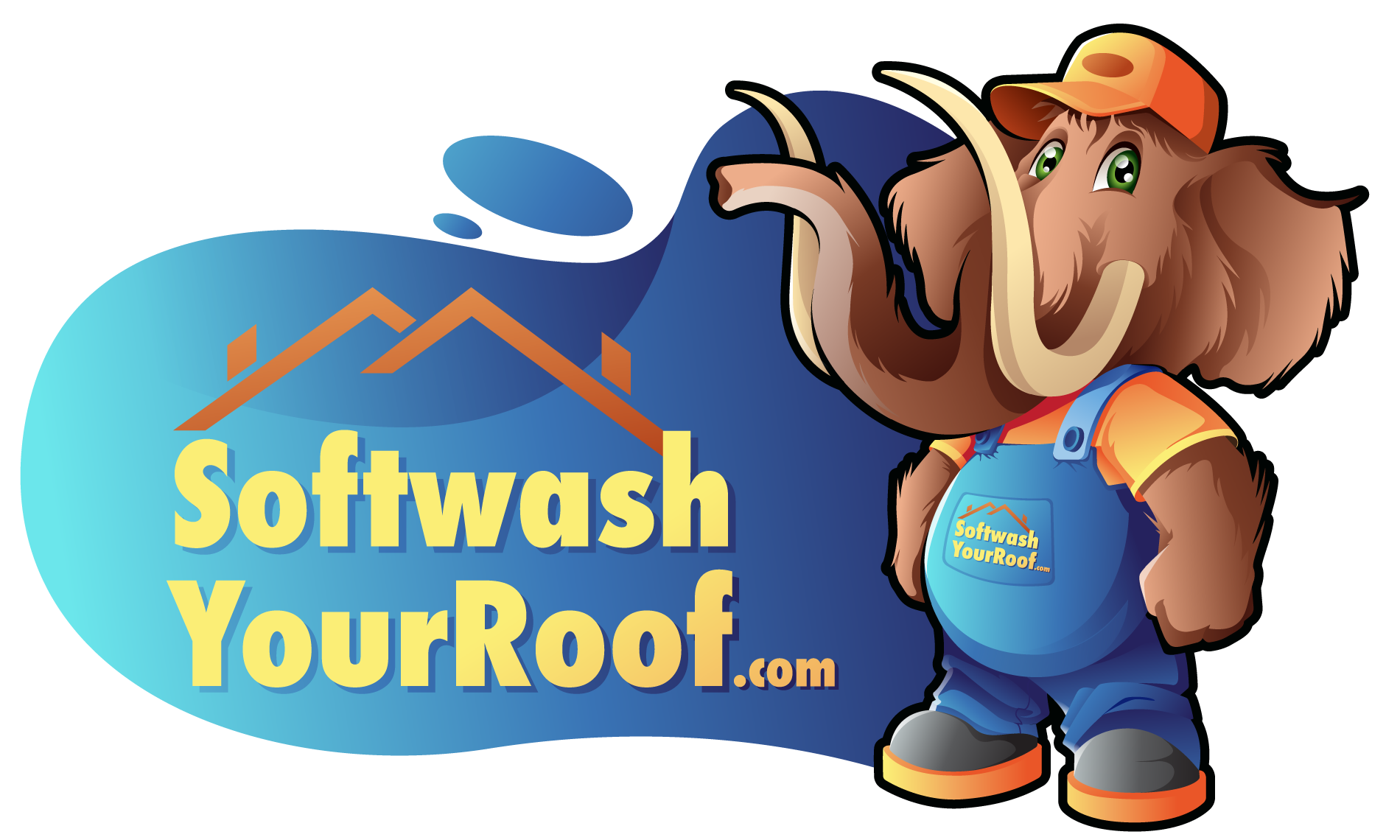
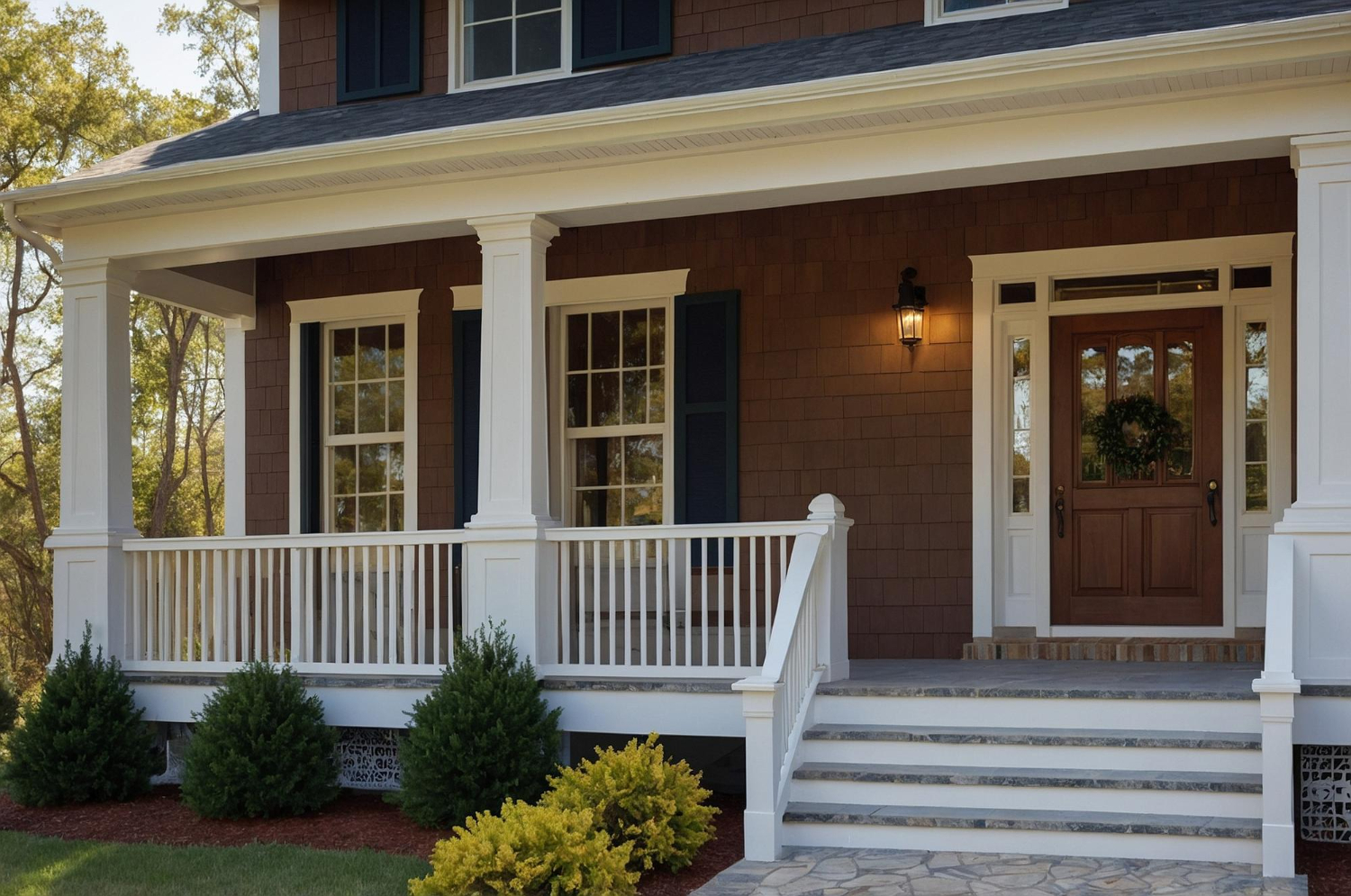
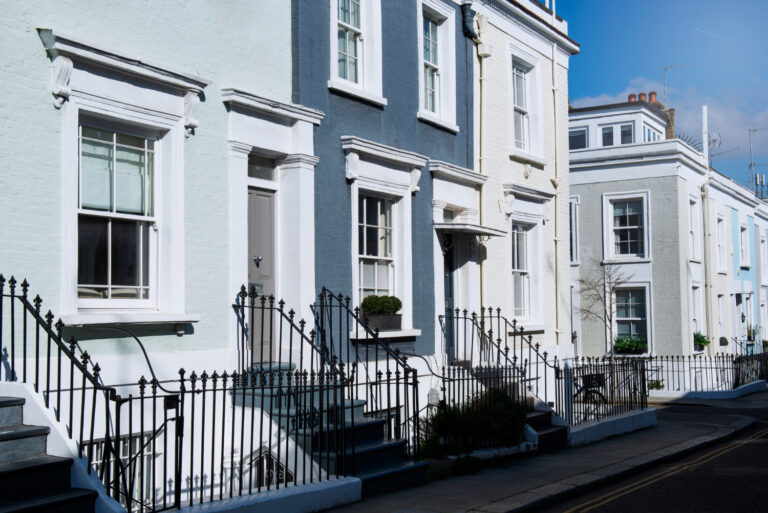

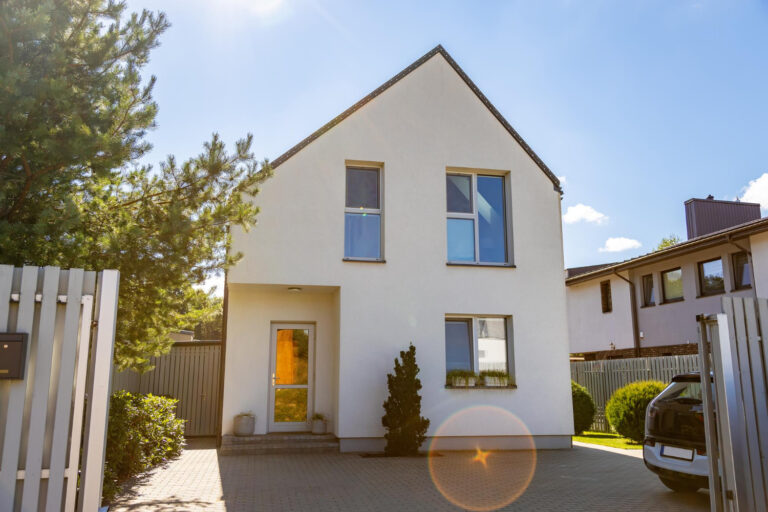
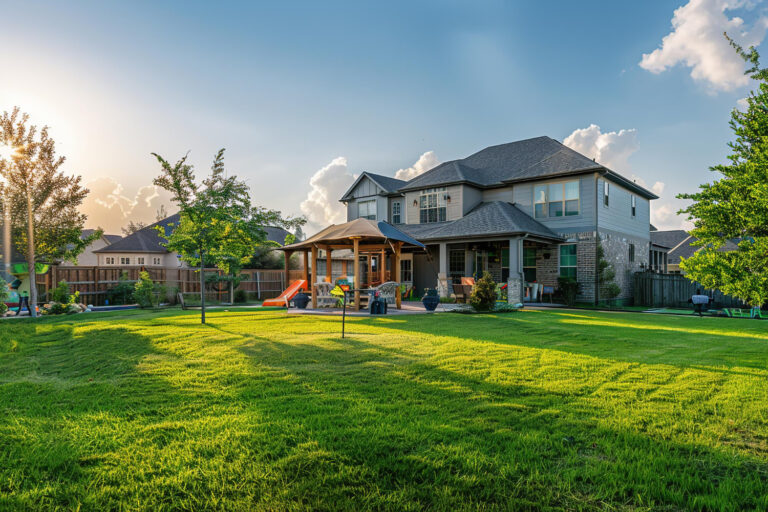

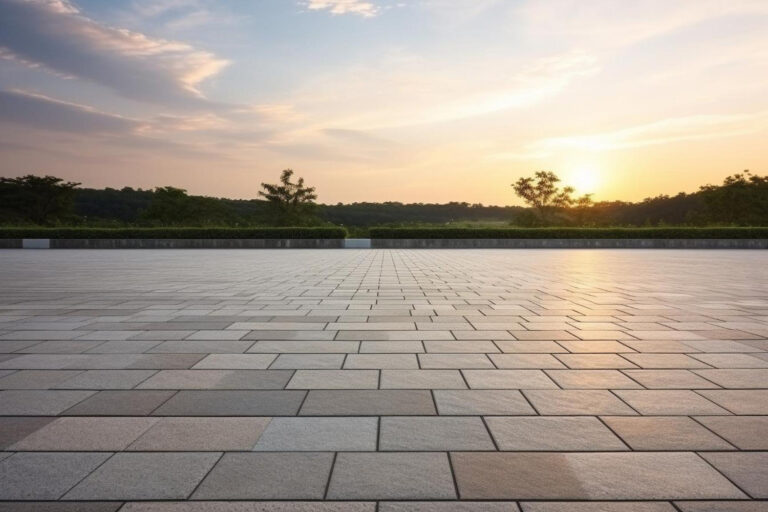

One Comment
Comments are closed.